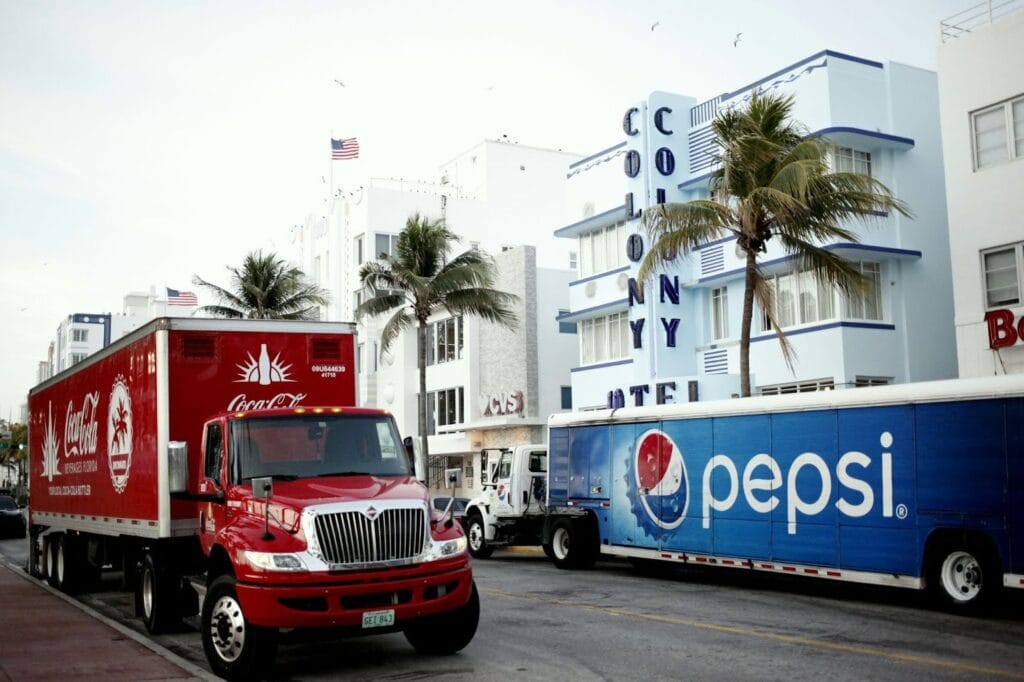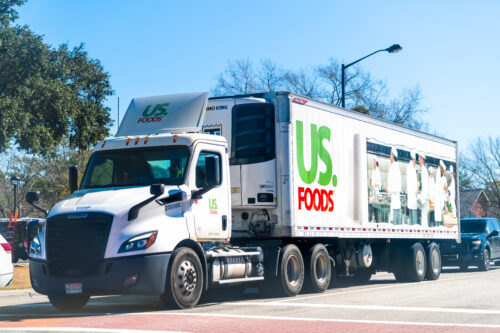Refrigerated Trucks: History, Benefits and Types

Refrigerated trucks, also called reefers, crucial for transporting perishable items under controlled temperatures, are the backbone of delivering fresh food and vital medications.
Remarkably, these reefers transport 70% of the food we consume, with around 500,000 units actively maintaining the cold chain across the United States.
In this blog, we will discuss the history, benefits, and types of these vehicles, along with insights into the significance of refrigerated shipping in global logistics.
History of Reefer Trucking
The advent of refrigerated trucking began in the 1920s, revolutionizing how perishable goods were transported. Initially serving the ice cream industry, the first successful mechanically refrigerated trucks emerged in 1925, invented by Frederick McKinley Jones.
By 1939, the development of automated cooling systems for shipping trailers further advanced the industry. With around 4 million refrigerated vehicles worldwide, these trucks and trailers are indispensable in maintaining the cold chain, crucial for the global economy.
Types of Reefer Trucks

Reefer trucks are essential in the transportation industry. They ensure that perishable goods reach their destination in optimal condition. Each type ensures that temperature-sensitive cargo is transported under optimal conditions.
Refrigerated Trailers
Refrigerated trailers, or reefers, are essential in cold chain logistics, transporting perishable goods such as food, flowers, and pharmaceuticals. They are often equipped with small vent doors for ventilation.
By maintaining precise temperatures, they ensure products remain fresh over vast distances. This capability is crucial for grocery stores and pharmacies, making reefers indispensable in local and global supply chains.
Cryogenic Reefers
Cryogenic reefers represent a specialized segment of refrigerated transport, utilizing liquid nitrogen or carbon dioxide to maintain temperatures down to -150°C. They’re pivotal for shipping susceptible medical supplies, including vaccines and biological samples, across great distances without compromising their integrity.
Heated Trucks
Heated trucks are tailored for goods that require warmth to prevent freezing, such as certain chemicals, cosmetics, and food products sensitive to cold. These vehicles are vital during winter, ensuring that the cargo’s temperature does not drop below a safe threshold, thus preserving the quality and efficacy of the transported goods.
Reefer Truck Features
Understanding the key features of reefer trucks is crucial for maintaining the quality and safety of perishable goods during transport.
Here are the top features of reefer trucks:
- Temperature Monitoring System: Ensures perishable goods are kept at safe temperatures throughout the journey, which is crucial for food safety and pharmaceutical transport.
- Reliable Vehicle Mechanics: Utilizes dependable trucks like Hino, Isuzu, and Toyota, minimizing the risk of breakdowns and ensuring timely deliveries.
- Fiberglass Body: Offers superior insulation and structural integrity, enhancing thermal efficiency by 20-30% compared to steel, crucial for maintaining temperature control.
- Galvanized Steel Chassis: Provides corrosion protection and durability, essential for withstanding heavy-duty tasks and adverse weather conditions.
- Efficient Design Maximizing Space: Optimizes cargo space, allowing for more products per delivery and reducing wasted space, which is key for profitability.
- Dependable Refrigeration Units: These are the core of reefer trucks, ensuring goods remain fresh. Brands like Carrier are preferred for their efficiency and reliability.
Refrigerated Box Trucks and Van Sizes
The range of refrigerated box trucks and vans caters to various cargo sizes and transportation needs. Some of the standard sizes are:
- 12’-14’ Trucks: Ideal for small-scale deliveries, these trucks can carry 4-6 pallets, supporting loads between 5,000 to 7,000 lbs. Perfect for local, urban deliveries of fresh produce or pharmaceuticals.
- 16’-20’ Trucks: This is a mid-size option capable of handling 6-8 pallets with a payload capacity of up to 13,000 lbs. It is suitable for medium-sized businesses distributing goods across regions.
- 22’-28’ Trucks: Designed for heavy-duty hauls, these trucks accommodate 10-12 pallets and payloads between 9,000 and 15,000 lbs. They are the go-to for large-scale, long-distance deliveries of frozen foods or temperature-sensitive cargo.
Significance of Refrigerated Shipping and Logistics
Refrigeration in logistics revolutionizes the transportation of perishable items, ensuring they reach destinations fresh and safe. Reefer trucks and trailers are vital for maintaining the cold chain and crucial for food safety, pharmaceuticals, and other temperature-sensitive goods. This technology enables global trade, extending the market reach and consumer access to diverse products.
Buying New or Used Refrigerated Trucks
Evaluating the advantages of new versus used refrigerated trucks is essential when shopping for these trucks. Resources for finding these vehicles include online sales sites, specialized truck dealers, and industry trade shows.
- New refrigerated trucks come with the latest technology and comprehensive warranties, listed on the dealer’s site and trucks for sale pages.
- Used refrigerated trucks offer significant cost savings and are a viable choice if they have a transparent maintenance history, often found on sales pages.
- Researching through online sales platforms, dealerships, and trade shows is crucial to making an informed decision.
When buying, it’s essential to consider the truck’s maintenance records and cargo area size, typically listed on the sale page.
Advantages and Disadvantages of Refrigeration Truck Fleets
Managing a fleet of refrigerated trucks is crucial for companies transporting perishable items, offering unique advantages and facing specific challenges.
Advantages:
- Better shipping rates: Specialized services allow refrigerated trucks to command higher rates, improving profitability.
- Expanded market access: These trucks transport diverse perishable items, opening up new markets.
- Preservation of sensitive cargo: Ensures the safe transport of food, pharmaceuticals, and other temperature-sensitive products.
- Enhanced customer satisfaction: Reliable delivery of fresh products builds customer trust and loyalty.
Disadvantages:
- Higher initial cost: Advanced cooling systems and insulation significantly increase the purchase price.
- Maintenance complexity: Requires specialized maintenance, increasing operational costs.
- Insurance premiums: High value and cargo sensitivity lead to higher insurance costs.
- Deadhead miles: Limited backhaul opportunities can result in non-revenue-generating miles.
- Loading requirements: Strict loading protocols to maintain temperature integrity can reduce flexibility and efficiency.
Rules Governing Refrigerated Goods
Regulations governing refrigerated trucking are designed to ensure the safe transport of perishable items, adhering to health and safety standards. These rules, set by agencies like the FDA and USDA, mandate specific temperature controls and handling procedures to prevent spoilage and contamination, ensuring consumer safety.
FAQs
1. How long do refrigerated trucks last?
These trucks can last 10-15 years with proper maintenance, depending on usage and care.
2. What do refrigerated trucks do?
They transport perishable items under controlled temperatures to prevent spoilage.
3. Who manufactures refrigerated trucks?
Companies like Thermo King, Carrier, and Isuzu are leading manufacturers of refrigerated trucks.
4. Do refrigerated trucks make more money?
Yes, refrigerated trucks often command higher shipping rates due to specialized services.
Guide to Reefer Truck Logistics
In conclusion, reefer trucks are pivotal in transporting perishable items, ensuring they remain fresh from origin to destination. Whether new or used refrigerated trucks, these vehicles are essential for companies looking to maintain the cold chain.
With technological advancements and adherence to regulations, refrigerated box trucks remain a vital asset in the global logistics and supply chain industry.
